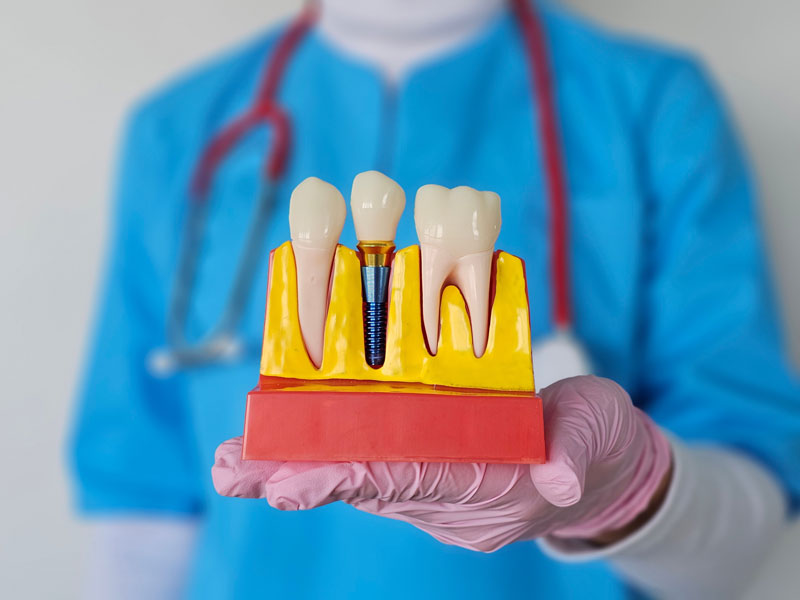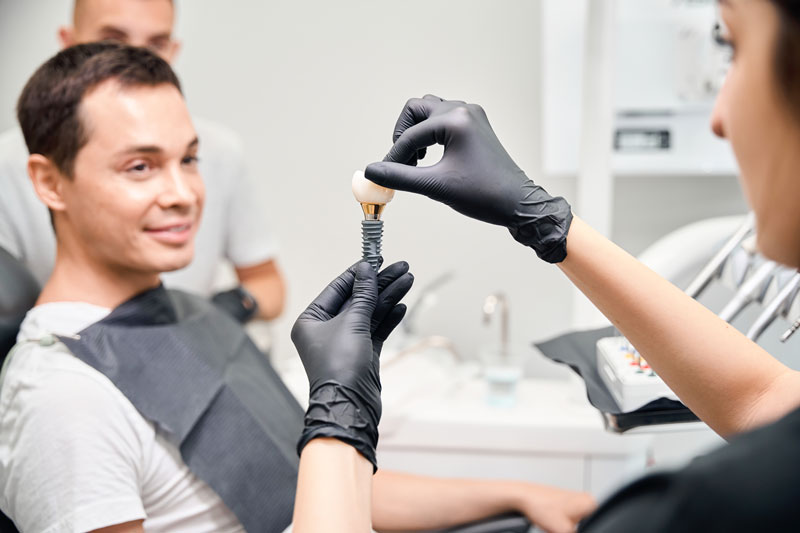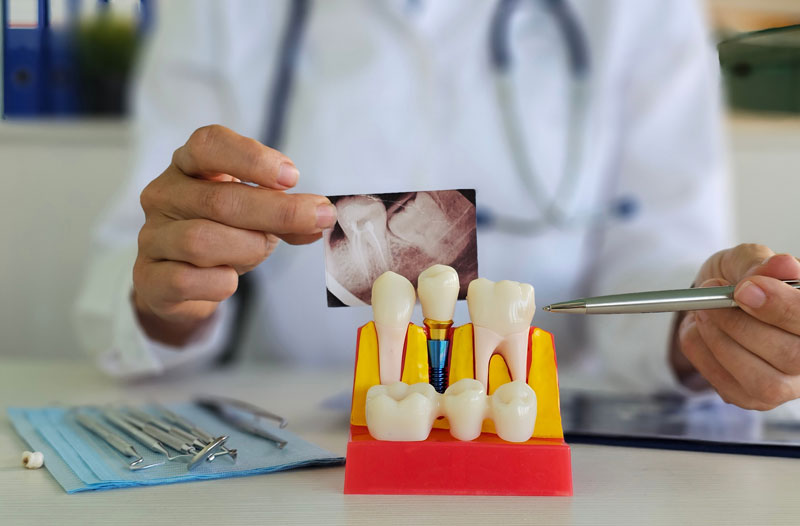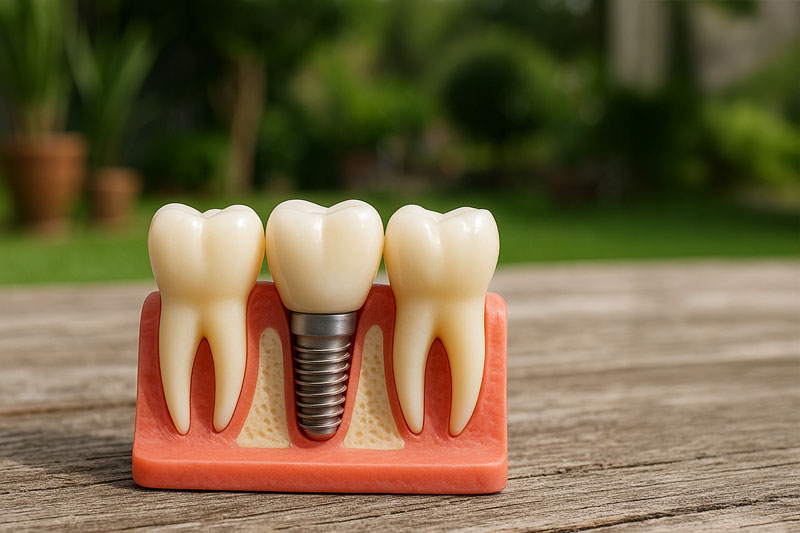Is Sleep Bruxism a Serious Problem?
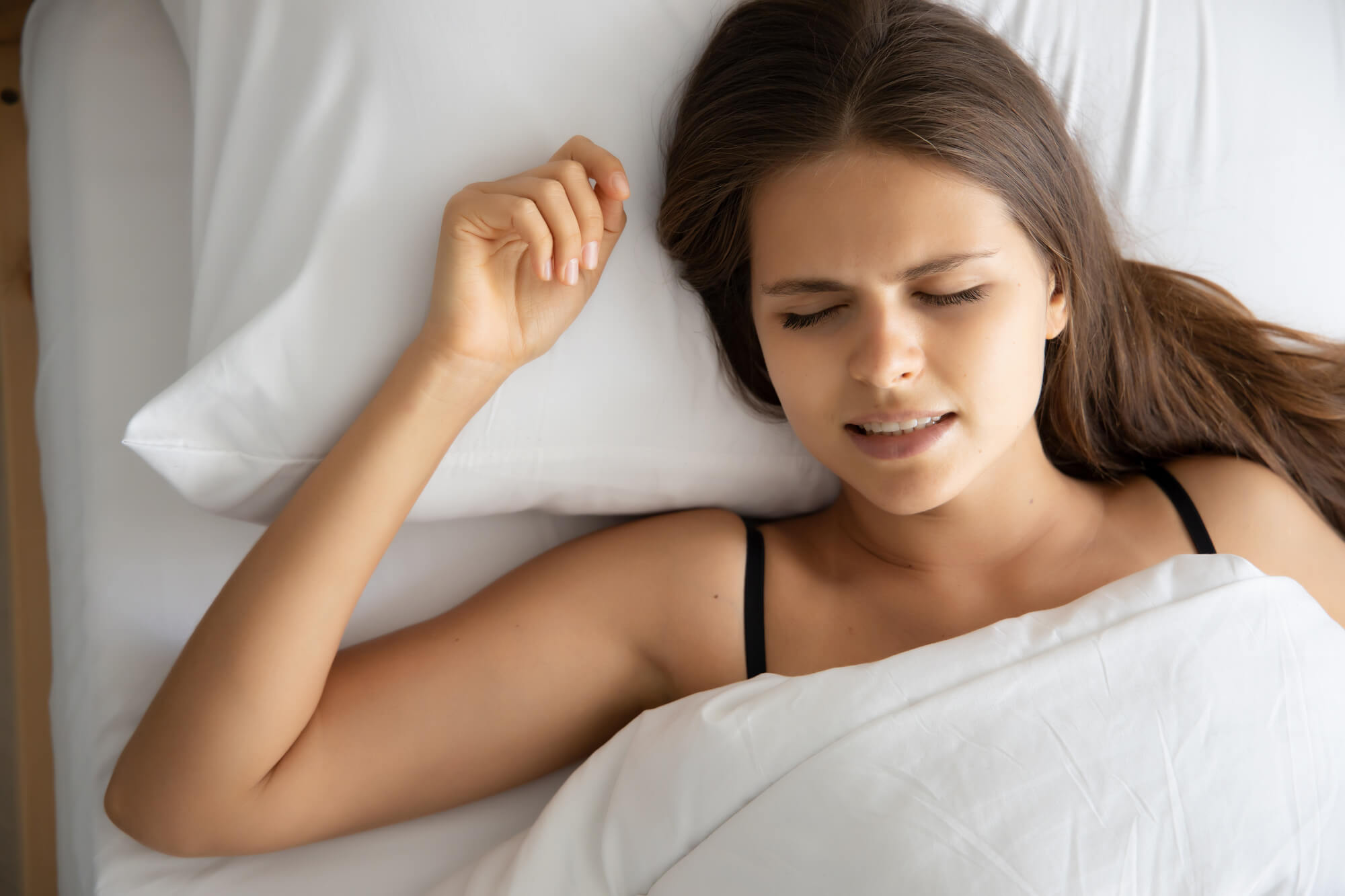
People who grind their teeth in their sleep need periodontics in West Palm Beach. Some individuals respond to stress, fear, or anger by clenching or grinding their teeth. Meanwhile, some repeatedly gnash their teeth even in the absence of a stressor. This condition is known as bruxism.
It can happen while the person is awake or sleeping soundly at night. People who grind their teeth in their sleep are unaware of their condition. Unfortunately, if this isn’t addressed, it will eventually lead to serious oral health problems in the future.

Should You Address Sleep Bruxism?
What Is Sleep Bruxism?
Generally, bruxism is a condition where a person grinds their teeth. There are two types of bruxism – awake and asleep. As the name implies, awake bruxism is when a person is conscious. Meanwhile, sleep bruxism is when a person grinds their teeth in their sleep.
Between the two, sleep bruxism is more common. Statistics show that 5% of the total population have daytime bruxism, while 16.5% are diagnosed with sleep bruxism.
The challenge of sleep bruxism is that people are unaware of how strong their bite is, so they tend to grind their teeth with greater force. Nighttime teeth grinding is more common in children, teens, and young adults.
What Are the Symptoms of Sleep Bruxism?
The most obvious symptom of sleep bruxism is the involuntary gnashing and clenching of teeth during sleep. The person will look like they’re chewing but with much greater force. The teeth grinding movement doesn’t occur all night long but instead in episodes of clenching and grinding. It may not also happen every night, making the inconsistency harder to pin down.
It’s normal for some people to make chewing movements in their sleep, known as rhythmic masticatory muscle activities. It differs from sleep bruxism because the latter involves greater force and frequency.
Sleep bruxism commonly occurs during the early stage of the sleep cycle (stages 1 and 2), and only a small percentage occurs during REM sleep. People with sleep bruxism are unaware that they grind their teeth unless someone mentions it.
Besides the apparent teeth grinding, other symptoms dentists look out for are jaw and neck pain. People with sleep bruxism often complain of pain in their jaw and neck. The pain is a result of muscle tightening during bruxism episodes.
It’s also common for people to complain about headaches when they wake up. Unexplained teeth damage can also be a sign of bruxism.
What Are the Effects of Sleep Bruxism on Your Oral Health?
The consequences of sleep bruxism may not seem serious at the moment, but over time, nighttime teeth grinding will take a toll on your oral health. The force applied to your teeth can destroy tooth restorations like dental crowns, implants, and filings. It also predisposes you to TMD or temporomandibular joint disorder.
TMD can lead to chronic jaw pain and difficulty chewing. However, not all people with sleep bruxism end up with serious complications as it depends on the severity and the frequency of the grinding, their diet, and teeth alignment.
How Is Sleep Bruxism Treated?
Unfortunately, there is no cure for sleep bruxism, but your dentist can employ several strategies to minimize the effects on your teeth and jaw and decrease the episodes. The treatment for bruxism is not the same for everyone. The following are methods of addressing sleep bruxism:
#1 Reducing Stress – Did you know that stress is one of the major contributors to awake and sleep bruxism? If the source of your teeth clenching is stress, then the best way to manage it is to learn how to manage your stress naturally.
When the trigger is addressed, the clenching stops. As much as possible, remove yourself from stressful and toxic situations. Some of the techniques you can employ when dealing with negative thoughts are talk therapy and cognitive behavioral therapy. Relaxation techniques can also help.
#2 Medications – Certain medications can help reduce the incidence of sleep bruxism. The drugs work by changing the chemicals in your brain, reducing muscle activity (teeth grinding). However, medications are only used sparingly because of long-term side effects.
Another way to control muscle movement is through cosmetic injections. However, injections are only recommended for severe cases.
#3 Mouthpieces – Dentists may recommend wearing mouthpieces and mouthguards to protect your teeth and other dental restorations (dental crowns, fillings) from damage caused by teeth grinding.
The device acts as a barrier that safeguards your teeth from the impact of forceful grinding and clenching. You can get them over the counter or request a customized mouthguard from your dentist. These mouth protectors may cover sections of your teeth or an entire arch.

Do You Need Periodontics in West Palm Beach?
Did a family member mention that they saw and heard you grind your teeth in your sleep? Don’t ignore it. See your dentist check if you have sleep bruxism. At Ferber Dental Group, we strive to provide excellent dental services to all our patients. We offer affordable dental treatments customized to fit your needs and budget. Contact us today for an appointment.



